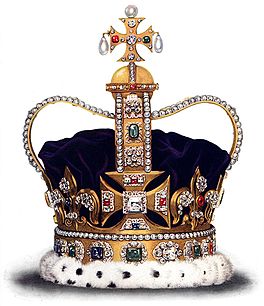Once one of the world’s greatest empires, modern Spain’s history has generally been more cautionary than exemplary. Yet contemporary Spain seems surprisingly successful in what it has accomplished – or, perhaps, more pointedly, in what it has avoided – in its justly famous transition from brutal civil war and decades of dictatorship to democracy and a renewed European identity. It also, of course, constitutes a classic study in Catholic integralism followed by rapid secularization, something it shares most notably with Quebec and Ireland.
Michael Reid writes for The Economist but has been following Spanish affairs since his first visit as a university student in 1971. The title of his book, Spain: The Trials and Triumphs of a Modern European Country (Yale U. Pr., 2023) highlights his focus. For contemporary Spain has, in brief, become a modern European country. It has specific problems in the public administration sector and, above all, in unresolved regionalisms (for which he seems inclined to favor a somewhat federalist solution), but basically it has become a normal, modern, secular society and European state.
Having watched Spain’s dictatorship-to-democracy and religious-to-secular transitions from afar but with great interest, I found especially profitably reading the sections of Reid’s book that highlight how well the political transition worked and why. That transition, he writes « broke almost two centuries of relative decline, political instability and episodes of fratricidal conflict, » not only replacing the 1939-1975 dictatorship with a democratic constitutional monarchy but replacing the largely downward trajectory of Spanish history with a new direction.
Towards the end of the book, the author recalls the elderly Generalissimo Franco’s comments to President Nixon’s representative Vernon Walters in 1971. Franco told Walters he had created some institutions, Juan Carlos would take over as king and « Spain will go a long way down the road that you people, the English and the French, want: democracy, pornography, drugs and so forth. There will be a lot of crazy things but none of them will be fatal for Spain. » When Walters asked him how he could be so sure, Franco replied, « Because I left something that I didn’t find on taking over the government of this country 40 years ago. … The Spanish middle class. Tell your president to trust the common sense of the Spanish people, there won’t be another civil war. »
Avoiding another civil war, was, of course, the common motivation that made the transition work. It was the first of the two « powerful ideas » Reid cites as guiding the transition: the « imperative to avoid any repeat of the Civil War of 1936–39 » and the imperative « that Spain should become a normal Western European country. » So far, at least, fidelity to those two principles has largely worked well for Spain.
Unlike previous Spanish constitutions that « had been dictated by the winning side in internal conflicts and rejected by the losers and were thus rendered ephemeral, » the transition’s architects were committed « to reach broad and durable agreements. » Reid identifies two specific « historic compromises. The left accepted a parliamentary monarchy instead of the republic it had fought to defend in the Civil War, whereas the right accepted devolution in place of Franco’s unitary, centralised regime. »
Equally critical was the amnesty law, the so-called Pact of Forgetting. Reid emphasizes the historic distinction that Spanish democracy was not imposed from outside (as in post-war Germany and Italy), but rather « arrived through agreements between moderate supporters of the dictatorship and a realistic democratic opposition. » One critical pillar of this process « was the amnesty law and a broad understanding not to use the past as a political weapon. » Reid does not doubt the wisdom of that course. A problem at present is that « younger generations and some on the left worry that Spain never addressed the crimes of its past and some of the deeper scars. » Reid recognizes the value of some parts of the historical memory movement, such as the right to know where one’s civil war relatives were buried, but he is wisely concerned about some other aspects that look « like the government establishing official history and deciding who was good and who was bad. »
More basically, he concludes, « truth, justice and reconciliation form an impossible trinity. Arguably, Spain’s transition to democracy was successful precisely because it did not incorporate transitional justice, which might well have delayed it, made it more violent or prevented it altogether. »
It seems to me that the so-called Pact of Forgetting represents a realistic recognition that everyone remembered all too well what had happened, how horrible the civil war was, and wanted to avoid another one at all costs. It is precisely today’s left-wing efforts at ostensible remembering that represent a forgetting of that fact, with all the divisive risks that that entails.
Reid’s retrieval of the actual history of the Civil War also requires him to acknowledge that it was really a civil war, reflecting genuine divisions within the society. « There was civil war, not genocide. Almost half the country had voted for the right in 1936. » He also recognizes that, had the Republic won, « Spain would almost certainly have suffered a Communist regime, just as Eastern Europe did after 1945. »
It is often been observed that when the modern Left abandons (in practice, if not in theory) much of its traditional egalitarian economic agenda, it falls back on its old hobby-horses – like anti-Catholicism. Reid does not seem to have much sympathy for the Church and seems to favor modern separationist ideology, but he does recognize how complex that can be in a country like Spain.
Franco, Reid recognizes, was never much of a fascist. He was at most « a fascist of convenience rather than conviction. » After the war, « Franco swiftly distanced himself from the Axis. Almost overnight, the regime’s ideology began to stress Catholicism, in the Spanish conservative tradition dating back to the nineteenth century or even to the Counter-Reformation. »
If Franco wasn’t much of a fascist, neither was he mucf a monarchist. At the outset of the civil war, he secured the backing of his fellow generals, many of whom « hoped for and expected a swift post-war restoration of the monarchy. Franco turned this conditional mandate into one of the twentieth century’s longest-lasting personal dictatorships. » (Interestingly, Count Galeazzo Ciano, Mussolini’s son-in-law and Italy’s Foreign Minister for 1936 to 1943, wrote in his famous Diary in March 1939 that Mussolini conveyed to Franco his opposition to any restoration of the Spanish monarchy. Ultimately, in following Mussolini’s recommendation, Franco was just doing what he was inclined to do anyway to serve his own agenda, just as in not following Mussolini into war as Germany’s ally he was also serving his own agenda – successfully as it turned out.)
One consequence of Spain’s isolation under Franco « was a burning desire to join the rest of Europe, in customs and laws as well as politics and the economy. » Secularization seems to have become an important part of that Europeanizing process. He notes that in 1975, « more than nineteen out of twenty Spaniards were baptised Catholics and 60% of them attended mass. In 2001 82% of respondents to the CIS poll still defined themselves as Catholic, but only half do now. Only about a fifth still go to mass regularly. Not only has the number of marriages declined each year over the past decade or so but in 2019 only a fifth of weddings were in a church. Nowadays almost half of children are born to women who are not married. The ‘national Catholicism’ of the Franco regime swiftly dissolved into official secularism. »
Spain’s most critical contemporary concern is probably the problematic persistence of regional separatist movements. Here, Reid’s apparent advocacy of a more federalist solution seems especially interesting, if still somewhat unlikely. Reid devotes a lot of space to the regionalism problem. There are, however, other, newer concerns. In particular, « the Spanish political class has become increasingly disconnected from the public, operating in a self-referential cocoon that has little bearing on the concerns of citizens. That is how the public perceives them. The electoral system contributes to the disconnection. » Then there is the « depopulation » of interior parts of Spain. Finally, there is the universal problem of climate change, which may be especially bad in Spain. « Modelling suggests that the western Mediterranean is likely to face a bigger change in its climate than the rest of Europe. »
Reid seems uncertain about the future of the monarchy, which was, of course, crucial for the transition. In my view, in addition to its vital symbolic function, monarchy increases institutional stability. In general, the more elements politically in play, the more conflicts are likely. Monarchy removes one very central element from political conflict. Reid recognizes that for many on the right and in the center, the monarchy has been « a crucial bulwark of the constitution and against extremism. » On the other hand, « Juan Carlos’s misdeeds inflicted lasting damage to the institution, especially to its reputation among young people. » The future, Reid suggests, may well « depend on how effective Leonor, King Felipe’s elder daughter, proves to be as a representative of the monarchy. » The Bourbon monarchy’s « second weapon, » he suggests, « is inertia, and that may be decisive in its survival. »
Reid has considerable confidence in Spanish society’s resilience and overwhelming moderation. Even so, he is not complacent about Spain’s future.




